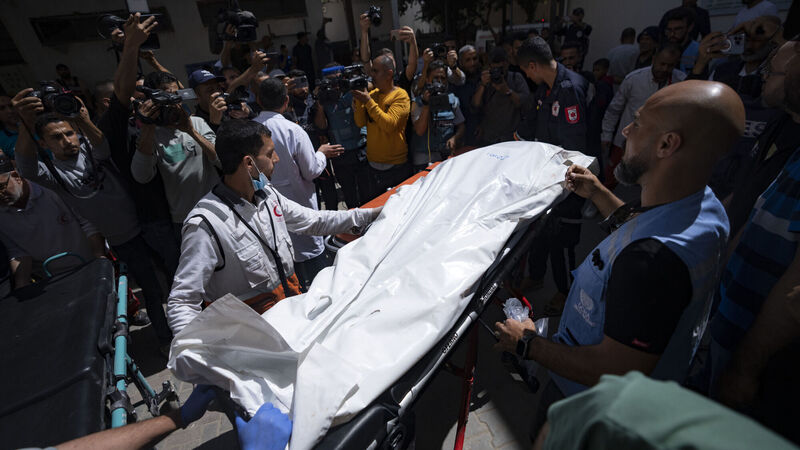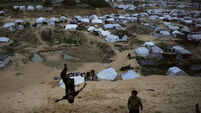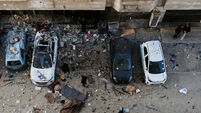What now for Gaza after World Central Kitchen suspends aid operations?

Members of the World Central Kitchen aid group transport the body of one of the six foreign aid workers who were killed in Monday's Israeli strike to a hospital morgue in Rafah on Wednesday. Photo: AP/Fatima Shbair
A cargo ship carrying 240 tonnes of food destined for Gaza has returned to Cyprus, after aid workers from World Central Kitchen (WCK) were killed in an Israeli strike on Monday evening.
After the attack, WCK paused operations in the territory and turned its flotilla of ships back to Cyprus.
















